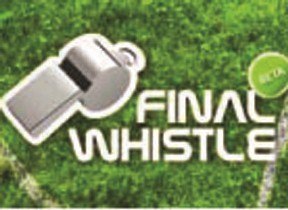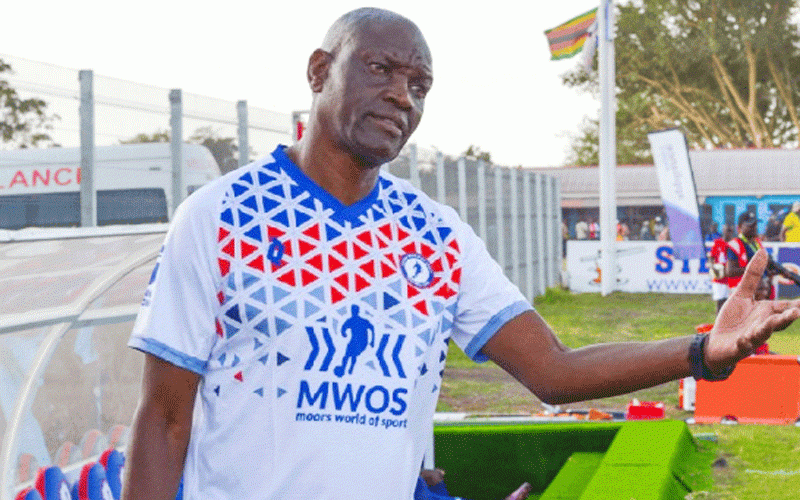
Recently City of Harare Mayor Muchadeyi Masunda suggested that by failing to work with council, which had offered them long leases for Rufaro and Gwanzura stadiums respectively, Dynamos and CAPS United were losing an opportunity to realise their full potential.
Final Whistle with Omen Muza
“That opportunity — in simple terms — would have meant that in the case of Dynamos, they would have taken over the administration of Rufaro Stadium and CAPS United, Gwanzura, which is the most natural home for them because over the years it has proved to be their catchment area. But because of the chaotic manner in which those two clubs are run, it would be folly on our part as local authorities and owners of those facilities to continue hoping that they will heed our call and take up the offer,” said Masunda.
His Worship spoke in the past tense, which — reading between the lines — implied that a window of opportunity that was once wide open had been closed because the teams did not take up the offer when it was available.
If that is true, then Dynamos and CAPS United missed good opportunities.
I am not aware of the terms and conditions proposed by council for the leases and I can only assume that the offer was declined possibly because the ongoing costs of maintaining the grounds exceed rental costs or perhaps there are some upfront fees which the teams are unable to pay.
Otherwise I do not see how the two teams would fail to recognise the long term value being offered to them by the city fathers.
Dynamos currently use rented training facilities at Raylton Sports Club and Rufaro Stadium which could become both their training and home ground, resulting in significant cost savings. DeMbare would also benefit financially when the stadium hosts non-football events such as concerts, national celebrations and rallies.
- Chamisa under fire over US$120K donation
- Mavhunga puts DeMbare into Chibuku quarterfinals
- Pension funds bet on Cabora Bassa oilfields
- Councils defy govt fire tender directive
Keep Reading
The area around the stadium could be redesigned to create a secure parking environment from which extra revenue can be generated.
Currently, PSL clubs remit 20% of their gross gate-takings to municipalities for stadium rentals.
In early 2010, this led Dynamos to temporarily switch its home ground from Rufaro Stadium to National Sports Stadium in an effort to manage costs, as the latter — which is controlled by the government through the Ministry of Public Works — charges less in order to encourage and support local sporting activities.
Generally, football clubs make their money from various sources such as touchline advertising, endorsements, stadium naming rights and television rights.
However local clubs — Dynamos, and CAPS United included — currently do not benefit from stadium naming rights because most of them have no stadiums to their names.
Some still cling to long-held dreams that they will eventually construct and own their own stadiums — a very unlikely prospect given their current financial status.
Wherever possible, football clubs should therefore be urged to pursue strategic partnerships such as long-term leases with owners of existing stadiums as that would be a more realistic option of achieving pretty much the same objective.
Such arrangements do not, by any means, amount to reinventing the wheel as viable precedents abound. In mid-2011 Manchester City Football Club reportedly banked up to £400m under a sponsorship arrangement with Etihad Airways, making it the largest deal of its kind in sport.
Under the 10-year agreement, City’s ground was renamed the Etihad Stadium, with the transaction becoming worth more than twice the previous record held by JP Morgan Chase’s US$300m (£187m) for the new Madison Square Garden.
What made the transaction even more remarkable was that Manchester City does not even own the stadium, but Manchester City Council allowed them to negotiate the naming rights as part of an improved rental agreement, reached in 2011, under which the club would pay £20m over the next five years to the local authority.
The City of Manchester Stadium, originally built for the 2002 Commonwealth games, is owned by the City of Manchester Council, who in 2003 agreed to a 250-year lease for the stadium with Manchester City Football Club, at favourable rates.
The rent paid to the council was to be derived from match day income, specifically ticket sales.
No money was due if the attendance did not top the 32 000 capacity Maine Road stadium from which Manchester City was moving, while half the price of tickets sold above that level would be paid over, net of associated costs.
Manchester City eventually renegotiated the stadium lease, agreeing to pay the city council an annual fixed sum of £3 million, a modest sum which secured them unlimited use of a superb, modern 48 000-seater stadium. It is believed Etihad Airways fought off competition from Ferrostaal and Aabar to gain stadium naming rights.
What can stop Dynamos and CAPS United from negotiating similar win-win deals with the City of Harare, on which they can leverage for additional sponsorship opportunities?
Of course, we cannot begin to talk about similar amounts in Zimbabwe, but I believe that appropriate terms and conditions that make sense in the local context can be agreed upon. In the case of Dynamos, BancABC would hand-hold them in the negotiations. lFor comments email: [email protected]











